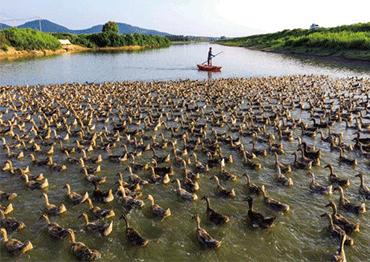On February 5, China’s central government issued its No.1 document, a guideline for the entire year related to agriculture, farmers and rural areas, referred to in Chinese as the “three rural issues,” or “san nong.” The document places this year’s focus on alleviating poverty and making up the shortfalls.
2020 is the year by which the government pledged to turn China into a moderately well-off society. The three rural issues, according to the government, largely determine how well-off Chinese society will be.
“As domestic and foreign risks are rising and the economy is slowing, rural issues are the backbone of the economy,” Minister of Agriculture and Rural Affairs Han Changfu told media.
Poverty alleviation is the baseline of building a well-off society, and the government this year will concentrate its efforts on areas of entrenched poverty, where the poverty-stricken population is more than 20 percent of the total, as well as aiding elderly or disabled poverty-stricken people.
The No.1 document contains a pledge to ensure food, hous�ing, education, medical care and clean drinking water are provided for the targeted groups.
The document emphasizes that while helping lift areas out of poverty, officials should prevent other areas falling back into poverty or becoming relatively poor compared to urban areas.
According to the document, infrastructure construction and public services, especially medical care, are the major shortfalls that have widened the urban-rural gap. The No.1 document proposes narrowing the gap by enhancing rural transportation, training and sending more medical professionals to villages and counties, optimizing pollution control and deepening land and financial reforms.
The document also highlights village governance, demanding local officials strengthen the publicizing of science and legal knowledge, improve conflict mediation and launch stricter clampdowns on gangsters and “black power.”
Another big focus is stabilizing grain production. The document said the government will continue to support agriculture and rural enterprises.
As pork production was hit heavily by African swine fever in 2019, the document lists measures to resume pork production, including promoting larger piggeries and green farming, strengthening epidemic control, and improving market supervision and regulation. The document predicts pork production will return to normal by the end of 2020.

 Old Version
Old Version